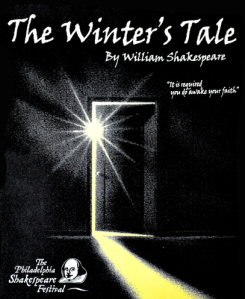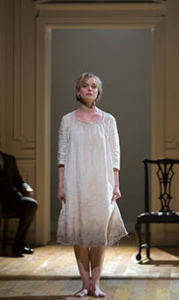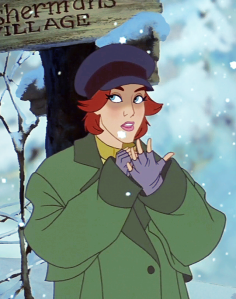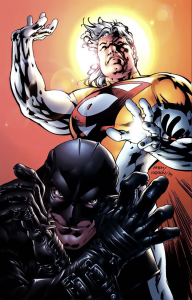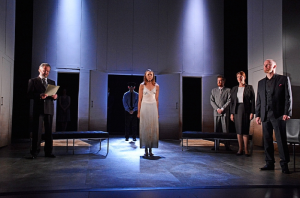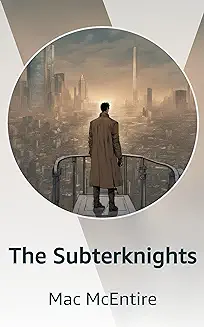Re-reading Shakespeare’s The Winter’s Tale! Here’s the second part of act 3 scene 3, the midpoint of the story, and the point of no return.
As Hermoine’s trial continues, she says whether she lives or dies is based on Leontes’ wild imagination. He seems to agree with her, saying, “Your actions are my dreams.” He describes dreaming she had a “brat” with Polixenes, and that the child was cast out. Is this the baby from act 2 scene 3, who will soon grow up to be a main character, or is all this happening in Leontes’ increased madness? It can be played either way.
Hermoine says to spare his threats, because the “bug” that he’s using to frighten her is better than the reality of her situation. The footnote on my Folger edition says “bug” means bugbear. I thought those were made up for Dungeons and Dragons, but I guess they go back to olden days. My Pelican edition goes one step farther in its footnote, saying bugbear is another word for “boogeyman.” My Oxford edition’s glossary entry for bugbear says “terror, bogey.” In D&D, bugbears are 7-foot-tall humanoids related goblins, bred solely for the purpose of battle. If we’re staging an epic fantasy retelling of The Winter’s Tale, would it be worth it to portray a bugbear in person, somehow menacing Hermoine? I don’t think so, because it would take away the intensity of the actual bear that’s going to show up soon.
Where were we? Hermoine gives another great speech about all the things she’s lost, listing them one by one. This is another good one that a talented actress can really run with. She concludes by saying she will leave her fate to what the Oracle said. The lord character who’s been hanging around throughout the play calls for the Oracle’s messengers. Here’s where Hermoine mentions her father, the deceased Emperor of Russia, and how heartbroken he’d be to see this. This speaks to a whole other backstory for her we don’t get to see.
An officer shows up with Dion and Cleomenes, the two messengers from the oracle. There’s another “swear by the sword” moment, though I imagine this one would have to be less dramatic than the one from earlier. In a low-budget staging of the play, the lord and the officer can easily be combined into one character. The two guys read the message from the oracle, which states Hermoine is chaste, Leontes is a jealous tyrant, and “the King shall live without an heir until that if that which is lost be not found.” If we’re going to have the oracle appear in person, this would be the part to do it. On stage, she can pop up on the balcony under a spotlight, as if stating these words as an apparition projected from far away. In a film, we could cut to a flashback of her saying this to the two messengers.
Leontes confirms that the message was read correctly, and then he says, “There is no truth at all” and “This is a mere falsehood.” When staged, I imagine there should be a long pause before he says this, as if he’s considering the oracle’s words while everyone else waits breathlessly to see how he will respond. The film version can do a slow and quiet push in on the actor’s face before he says these lines. Everyone else on stage can react with fear.
Then there’s more drama, and it happens fast. A servant rushes in to report that Mamillus, Leontes and Hermoine’s beloved son from the start of play, had died! Hermoine faints and taken off stage. Leontes has an immediate change of heart, thinking this is the god Apollo seeking revenge for denying the oracle, and for his treatment of his wife overall. (Remember that the Oracle of Delphi represents the Temple of Apollo.) The timing of this would indicate that if it’s not the gods, it’s at least fate that has brought about the boy’s death.
This is still all happening during the trial. Leontes then admits all his plots in front of the lord and officers, including the plot to murder Polixenes and then Antigonus’ reasons for leaving. He pleads for innocence for them both. Leontes’ change of heart happens so fast. How do you stage and perform this? The actor would have to have a true breakdown at this point. On the other hand, The Winter’s Tale is categorized under Shakespeare’s comedies, so this could be done to make Leontes look buffoonish. Or, in a film version, we could do some edits to show the passage of time, and then set the rest of this scene in a new location, visually illustrating Leontes’ change of mind.
But the scene’s not over yet, with even more drama to come. We’ll get to that… next time.
Next: Pawn takes queen.
* * * *
Want more? Check out my ongoing serial, THE SUBTERKNIGHTS, on Kindle Vella. A man searches for his missing sister in a sprawling city full of far-out tech, strange creatures, and secret magic. It’s a sci-fi/fantasy hybrid full of action, romance, mystery, and laughs. The first ten episodes are FREE! Click here for a list of all my books and serials.

